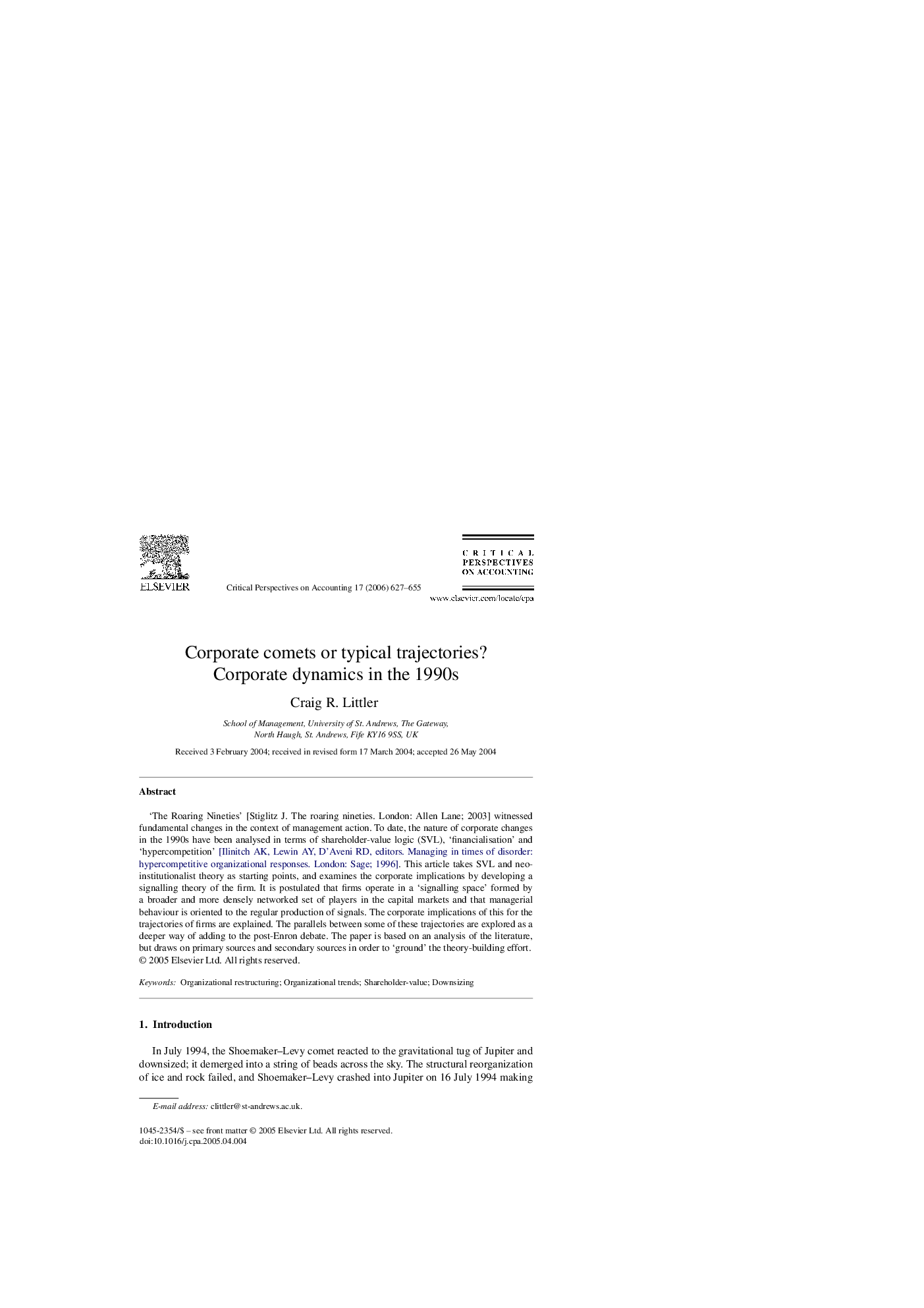| کد مقاله | کد نشریه | سال انتشار | مقاله انگلیسی | نسخه تمام متن |
|---|---|---|---|---|
| 1001841 | 937258 | 2006 | 29 صفحه PDF | دانلود رایگان |

‘The Roaring Nineties’ [Stiglitz J. The roaring nineties. London: Allen Lane; 2003] witnessed fundamental changes in the context of management action. To date, the nature of corporate changes in the 1990s have been analysed in terms of shareholder-value logic (SVL), ‘financialisation’ and ‘hypercompetition’ [Ilinitch AK, Lewin AY, D’Aveni RD, editors. Managing in times of disorder: hypercompetitive organizational responses. London: Sage; 1996]. This article takes SVL and neo-institutionalist theory as starting points, and examines the corporate implications by developing a signalling theory of the firm. It is postulated that firms operate in a ‘signalling space’ formed by a broader and more densely networked set of players in the capital markets and that managerial behaviour is oriented to the regular production of signals. The corporate implications of this for the trajectories of firms are explained. The parallels between some of these trajectories are explored as a deeper way of adding to the post-Enron debate. The paper is based on an analysis of the literature, but draws on primary sources and secondary sources in order to ‘ground’ the theory-building effort.
Journal: Critical Perspectives on Accounting - Volume 17, Issue 5, July 2006, Pages 627–655